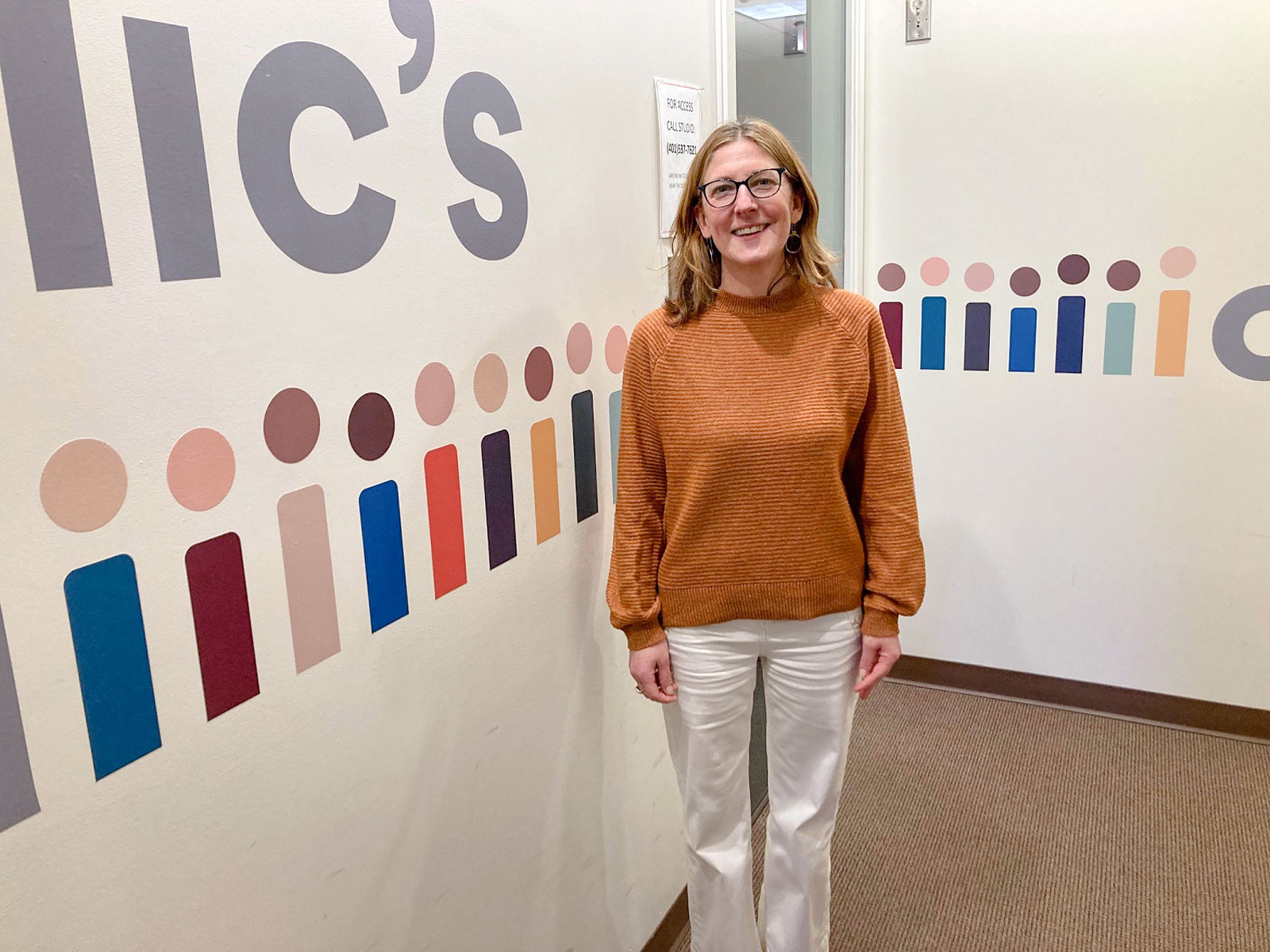
Jennifer Hawkins, executive director of ONE Neighborhood Builders, visits The Public’s Radio.
With an acute housing crisis in Rhode Island, Ian Donnis talks with the head of One Neighborhood Builders, a non-profit developer
By Ian Donnis
The Public’s Radio
Rhode Island’s housing crisis has been worsening for more than 20 years. The disconnect between what people make and what they can afford has grown wider over time, with the median cost of a home in the state now topping $400,000. The housing crisis is so serious that it has become a top issue in Rhode Island. But the state’s first so-called housing czar didn’t work out, and even when money gets allocated for housing, the process of putting it to work tends to move slowly. Is there any reason to think that Rhode Island can resolve its housing crisis? I’m Ian Donnis. This week, I’m going in-depth on housing with President and Executive Director of the nonprofit developer One Neighborhood Builders Jennifer Hawkins.
Ian Donnis: Rhode Island is hardly alone in having a housing crisis and housing is certainly a complex issue. But Rhode Island’s housing crisis has worsened over more than 20 years. Can we agree that the failure to address it over this time is a failure of public leadership?
Jennifer Hawkins: I think it’s a matter of the public will not necessarily being there to address the housing crisis. It’s also a fact of the matter that there haven’t been adequate resources, given the economic climate of the state in the preceding decades to really allocate the resources necessary to address the crisis.
Ian Donnis: Now that housing has emerged in the last two years or so as a major issue for the state. Do you think that there will be significant progress over the next five or 10 years?
Jennifer Hawkins: I’m very hopeful, you know, the governor was the first governor in many years to allocate resources for housing. Speaker Shekarchi has made this a priority. And so the leadership that we have at the Statehouse is unprecedented. There, certainly the $250 million that was allocated to housing is also unprecedented. But it should be clear that that $250 million that we often talk about is actually not all for production, only $177 million of it set aside for production and preservation of existing housing. We are grateful for that, but it’s wholly inadequate. And so while we are at this moment where it the housing crisis is in the public consciousness, that we’re coming out of COVID, we recognize that cases of COVID were higher in areas where there is overcrowded living situations, we know that we need to do this, we need to address this issue. And I am hopeful that with this awareness will come additional resources.
Ian Donnis: You mentioned $250 million, and how that’s a lot of money but inadequate to resolve the housing crisis. How much money will it take? And do you see this as being primarily a responsibility of state government? Are there other sources of funding? And how much housing will it take to resolve the housing crisis?
Jennifer Hawkins: You know, it’s really important that we have a better sense of the need, both the dollars that are required, as well as the number of units that we need to build as a state. In 2016, Housing Works and Rhode Island Housing co-commissioned a report and at that time, they predicted that we would need 35,000 more units of housing over the next decade. We have come nowhere close to achieving anything near that. So you could say, Well, why do we need to know precisely the number of housing units. And we all can agree that we need 1000s of units. But I do think the granularity of what AMI or area median income is necessary. The apartment size or for sale, home size, whether it’s one or two bedrooms, and where within Rhode Island, those housing units need to be constructed is really important that we do need to have that level of specificity. And I am encouraged by the fact that the newly created Department of Housing is seeking to understand our housing need at that level. And once we have a greater understanding of that, then we can be able to put numbers around that need. We all just know that there’s a lot more and a lot more money.
Ian Donnis: Speaking of the newly created Department of Housing, Stefan Pryor, formerly of the state’s commerce director started this week as the new housing director. He has some assets, certainly including a strong knowledge of state government. He’s very comfortable talking with reporters like me. At the same time as commerce director, he championed big projects like the rehab of the Superman building, the new soccer stadium in Pawtucket. Do you think he has the – will have the right approach to change gears and focus on creating housing at the different income levels that are needed in Rhode Island?
Jennifer Hawkins: I believe that Secretary Pryor has shown himself to be a very effective manager and to work closely with the governor in the administration. This is clearly a priority for the administration and I believe that Stefan Pryor will carry out those wishes. He has reached out to me, we’ve had a good conversation. And I’ve made it very clear that community development corporations, the nonprofit developer, such as One Neighborhood Builders, can be his greatest ally, that we are working in the space of providing deeply affordable housing. And that while the private sector is an important contributor to housing in general, for those of us who really care deeply about developing high quality, deeply affordable housing, the nonprofits are going to be his best friend.


